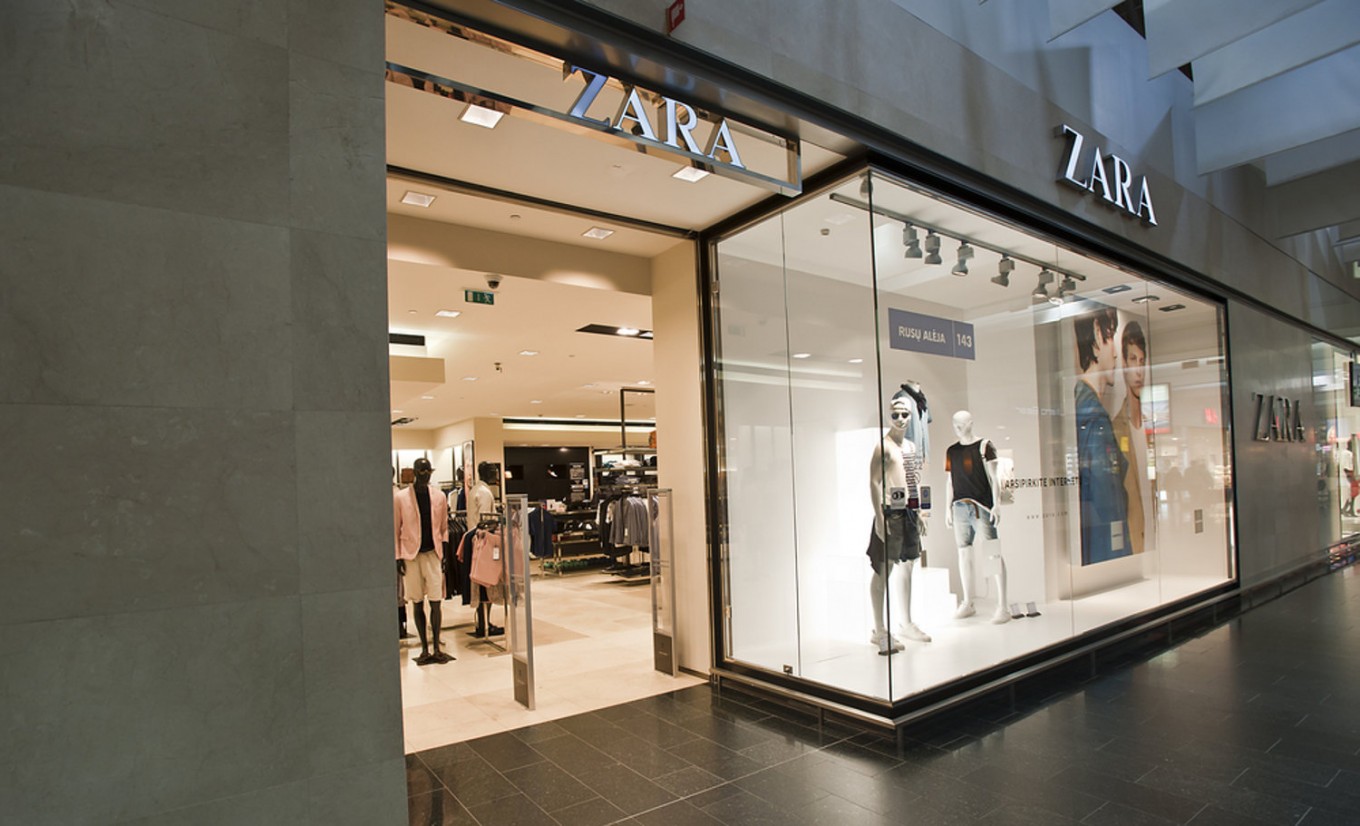Popular Reads
Top Results
Can't find what you're looking for?
View all search resultsPopular Reads
Top Results
Can't find what you're looking for?
View all search resultsIs human rights out of style in fast-fashion world?
An abundant amount of human rights violations hide comfortably behind many items of clothing from fast-fashion brands.
Change text size
Gift Premium Articles
to Anyone
T
he tragic story of notes sewn into Zara clothes from allegedly unpaid workers a few weeks ago triggered more discourse about fast fashion and labor rights. The notes are signs of the reality behind the scenes of the fast-fashion industry.
More people are now beginning to understand that behind the success stories of fast-fashion brands, such as H&M, Zara, Pull & Bear and Topshop, a large amount of human rights violations are taking place every day.
But what is the fast-fashion industry and how did it all start?
“Fast fashion” is a term used to describe contemporary fashion trends that change quickly each season. The clothes are mass-produced and priced affordably, thus attracting a large customer base. The fast-fashion industry first took off in the 1990s. Manufacturers chose to relocate production from the Global North to developing countries in Asia, to find cheaper labor that would allow them to maximize profits. Since then, Bangladesh, Cambodia, India and Indonesia have been safe havens for these businesses to produce their goods. Many large companies choose the area not only because of the low wages, but also because of the lack regulatory oversight in many Asian countries.
After more than a decade since the industry began its rise, horrendous accounts of widespread mistreatment of workers have become increasingly easy to find. Reports made by labor rights activists, human rights defenders and trade union groups show the world what is becoming a familiar tune: companies' prioritization of profits over people’s dignity. These brands have taken advantage of people, most of whom are women and living in poverty, allowing employers to pay their workers less than US$2 a day, in unsafe working conditions and lacking any rights that employees at regular companies take for granted.
The problem is caused by a number of factors, ranging from loopholes in the national laws, to failures in compliance by the government, retailers and factories, to the overall culture of consumerism and capitalism. But the crux of the problem is the deeply rooted capitalist mindset that prioritizes profit above everything else, including human rights and human dignity. When companies’ major focus is how to maximize profits, sustainability is often pushed aside. They try their best to eliminate anything that decreases profit margins. Workers become disposable, just like the clothes they sell at their stores.
This egregiousness has to end. The ultimate question then is how? We need a collaboration between consumers, governments and NGOs to continue to fight for the rights of those at the bottom of the heap.
As consumers, we need to be more responsible and think more critically in regards to our decision to purchase these items from fast-fashion brands.
The reason why this fashion industry thrives in the first place is that there is significant consumer demand. This is also their business strategy -- making their clothes cheap enough for regular consumers to afford them and feel that they’ve gotten their money’s worth. But these consumers often forget the fact that the fast-fashion culture makes the clothes “disposable,” and they’ll just end up buying more next season. Consumers need to start being more critical of their lifestyle choices and seeing it as uncool to consume goods from businesses that operate unethically.
Bangladesh, Cambodia, Vietnam, Indonesia and other countries where fast-fashion factories are located need to have governments that are truly committed to protecting their workforce. Cheap labor should not be portrayed as a country's competitive advantage and a good economic strategy. NGOs need to be more vocal about fighting the injustices faced by workers and raise more social awareness about the dark side of the fast-fashion industry.
At the end of the day, we all hold a sense of responsibility to ensure that major fast-fashion retailers do their part in doing business ethically, in a way that does not hurt the voiceless and suffering. (asw)
***
Kristi Ardiana is a human rights advocate and researcher in the making who studied international law. She is an avid reader, music enthusiast and someone who's always excited to hear new ideas or perspectives.
---------------
Interested in writing for thejakartapost.com? We are looking for information and opinions from experts in a variety of fields or others with appropriate writing skills. The content must be original on the following topics: lifestyle (beauty, fashion, food), entertainment, science & technology, health, parenting, social media, travel, and sports. Send your piece to community@jakpost.com. For more information click here.











